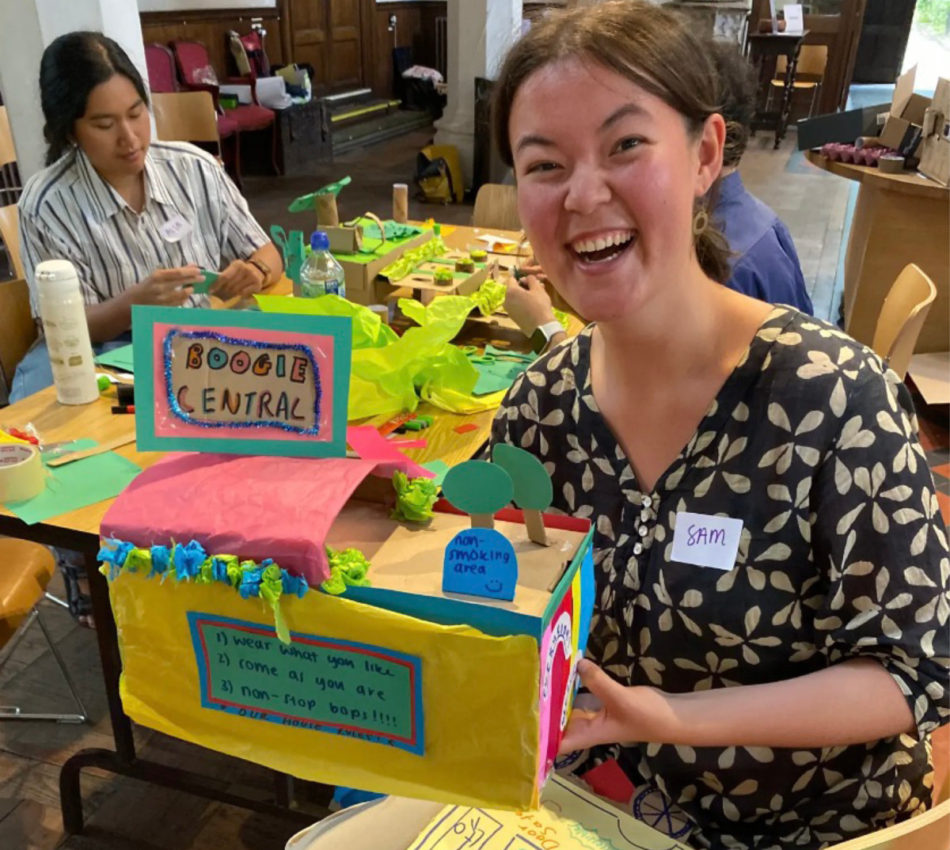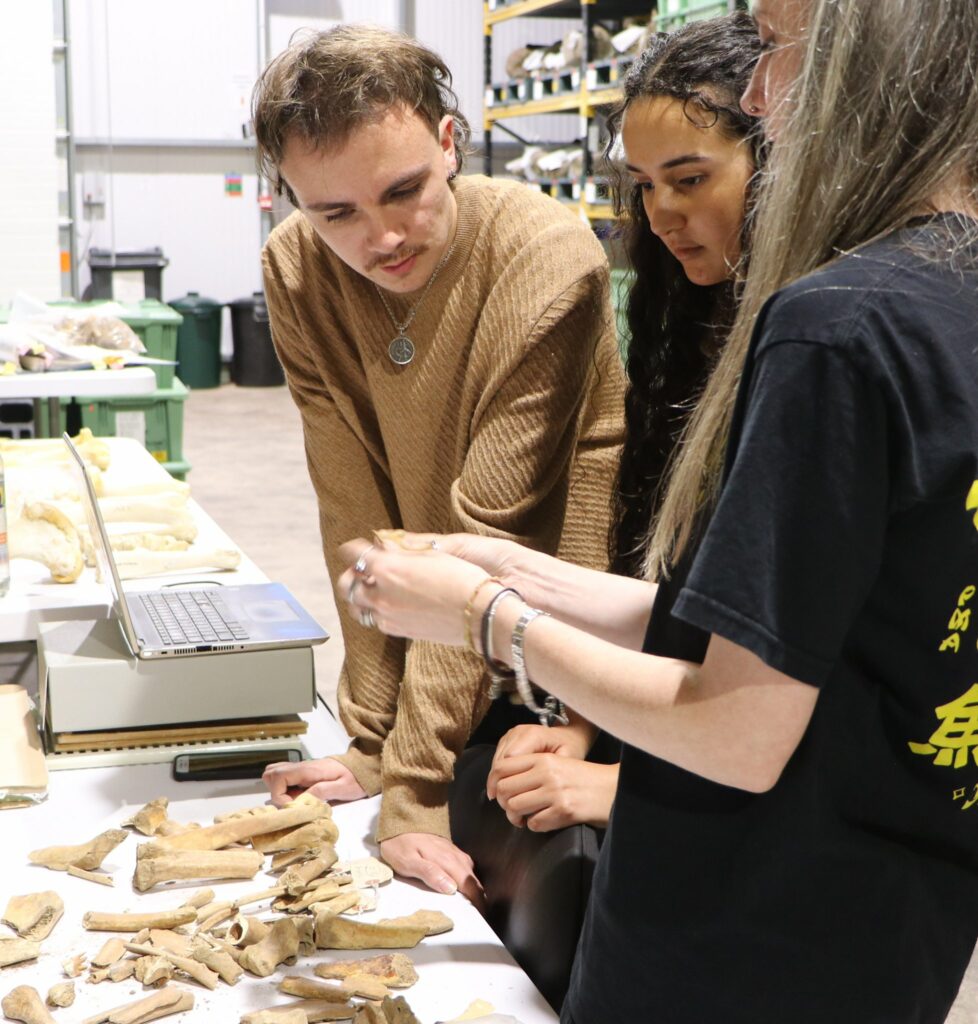Transforming and Activating Student Knowledge Exchange


Guest article from the University of Sheffield
For Higher Education Institutions such as the University of Sheffield, ‘Student Knowledge Exchange’ (SKE) can take many forms. At its most reductive, SKE is used to describe graduates going into employment. More meaningfully, SKE can include work placements and employability schemes; mentorship; student entrepreneurship; and curriculum-based and engaged learning initiatives such as Sheffield’s Transforming and Activating Places (TAP) project, an initiative that connected undergraduates in the arts and humanities and social sciences with cross-sector partners.
In 2019 I was part of the bid-writing team that yes, included students (paid). We were successful. We secured nearly £600k from the headline funder (Office for Students), plus more than £1m in kind from our partners for two years of amazing work.
When I look back at the aims we co-created, I’m struck by how they are still so relevant to what we want to achieve and advocate for today. For example, Aim 1: Impact positively on outcomes and experience for Widening Participation/BAME/first-generation students, by a) dismantling barriers to access work placement opportunities; b) introducing students to sectors that can benefit from their perspectives, skills and experience but which they might not consider as possible career options; c) supporting students to reflect on and articulate their ideas, skills and experience on place and placemaking in a way that improves their employability and articulates their value to employers; d) supporting students to use these ideas, skills and experience to work with partners on projects that impact positively on place and community.
But look, don’t believe me about the importance of this work, believe two of the young people who brought outstanding contributions to this project’s mission.
Before TAP I felt at a constant disadvantage when looking for work experience and I didn’t believe I could have as much to offer an employer as an employer has to offer me. I believed that my disabilities would be too much of a barrier, make me too difficult, make me feel like I was always asking for too much, and ultimately, I felt frustrated that I couldn’t just ‘do’ a job. This meant that I thought that being employable was to be an inauthentic version of myself, to be a person who hid and justified my disabilities by contorting myself into the persona of an employable person.
During my time with TAP, I experienced how SKE provides an opportunity to see myself as an asset to an employer. I understood the value of centring myself in conversations about my employability. I was encouraged to see myself as valuable because of my lived experiences. I learnt that my disabilities are part of my identity and are important to how I function in the world, but that this identity also had room for me to be creative, professional, and employable. By centring myself in my employability I learnt that I have skills and experiences that are valuable and worth sharing which helped me understand my needs in the workplace to find the accommodations that enabled me to thrive.

My experience with the TAP programme was one of opportunity. What I felt empowering was the targeting of disadvantaged students, who are at their core motivated, demonstrated by the barriers they have overcome just to attend the University. However, that motivation can only take you so far as insecurities are ever-present and opportunities to challenge those are limited. What knowledge can I offer to an organisation that’s unique, authentic, and that improves their operations? Would I be worth the accommodation required by my disabilities? I found that exposure to a new working environment, with different challenges and opportunities, was a little overwhelming at first, but I learned to adapt. This kind of exposure promotes growth.
When I reflect on this experience, I feel fortunate to have had the opportunity. I had passionate, creative and highly committed teachers and placement hosts who provided me with the platform and confidence to participate. I discovered new skills, which changed what I now believe is possible for my future career. As a disadvantaged student, I have no choice but to be involved with social issues, they permeate my lived reality, but I am seldom afforded the opportunity to be an active participant in SKE and thus co-design innovative solutions.
TAP incorporated structures and resources to enable these student contributions. For students, mentoring, training, and payments for doing the work; for partner organisations, a programme of advice and guidance, and funding and people resource for priority projects. TAP’s first tranche of funding came from a programme called What Works. If you want to achieve outcomes of the quality reported by Lydia and Alban, this is what works: you invest a proper level of resource (money and staff); you operationalise according to principles of equity and inclusion; and you involve students as co-creators at every stage of the work.

I am currently doing my MA in English Literature at the University of Sheffield and am working within the Cornerstone Employability Hub. I use my positive experiences of TAP to encourage disabled and neurodiverse students to find a workplace that understands and supports them. I will continue TAP’s philosophy of a student-centred approach to employability to encourage students to feel confident in advocating for themselves and understanding why their lived experiences make them unique, valuable, and employable.
Alban is a co-founder of The River Dôn Project, which – working with regional universities and the South Yorkshire Sustainability Centre – models the future rights of nature in South Yorkshire. He has already helped secure over £70,000 in seed funding for the project. Would there be a River Dôn Project without Alban’s involvement in TAP? Not sure.
We are happy to share more about what we see as the success factors for doing great SKE. Please feel free to get in touch, because this is a movement and it’s making better futures.

Jonathan Edward Bradley, Knowledge Exchange Manager, University of Sheffield
([email protected])
Lydia Bark, Cornerstone Employability Hub
([email protected])
Alban Krashi, Opus Independents
(www.weareopus.org)